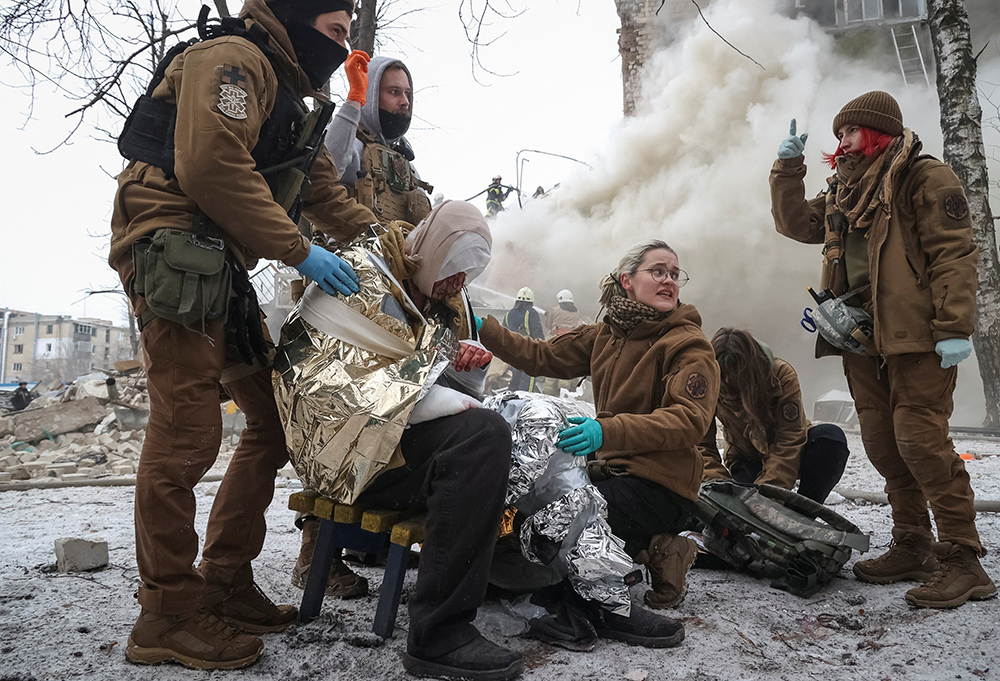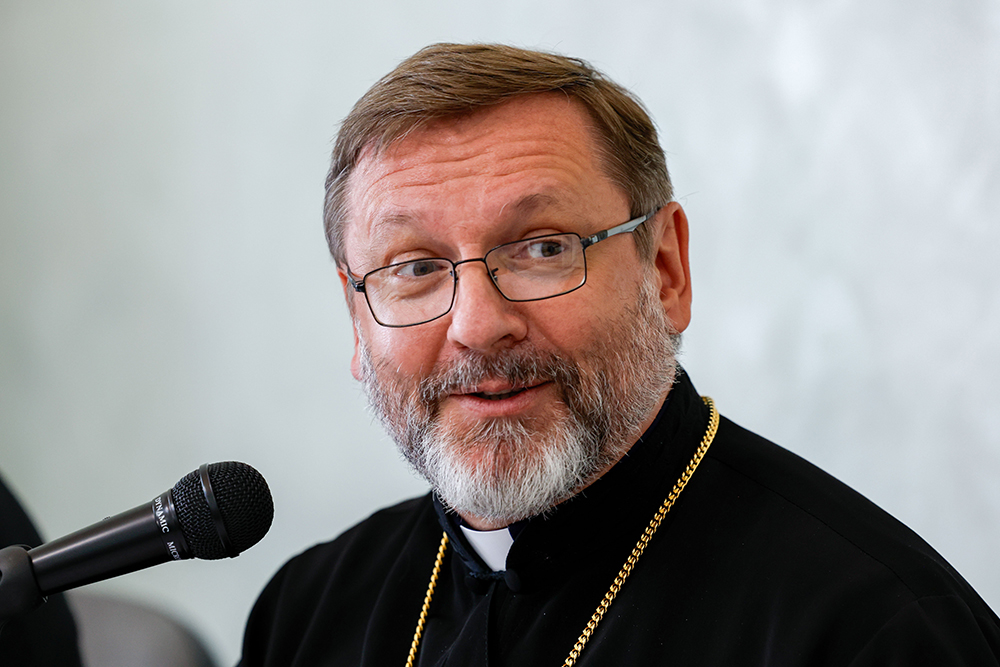
WASHINGTON — As Ukraine prepares to mark the second anniversary of Russia’s invasion Feb. 24, Church leaders of the war-torn country urged people not to forget the suffering and devastation that continues to take place.
“The war in Ukraine is becoming more and more forgotten,” said Major Archbishop Sviatoslav Shevchuk of Kyiv-Halych, head of the Ukrainian Greek Catholic Church.
To those who say life is returning to normal in Ukraine, he begs to differ, noting that attacks continue to happen 10 years after the armed conflict began.
Archbishop Visvaldas Kulbokas, the Vatican nuncio (ambassador) to Ukraine, similarly said “this unseen war affects everyone,” noting that life can seem normal “because we are used to this,” but he said the toll has been devastating.
The two Church leaders spoke during a Feb. 14 press conference on Zoom coordinated by Aid to the Church in Need, an international Catholic pastoral aid organization whose national headquarters is in Brooklyn.
The United Nations’ human rights office said Feb. 13 that there have been more than 7,000 civilian deaths, and 11,756 Ukrainians have been wounded primarily from shelling and missile and air strikes since Russia’s Feb. 24, 2022, invasion of Ukraine.
And a report to the U.N. in January said the scale of humanitarian needs in Ukraine remains vast, noting that “more than 14.6 million people — about 40% of Ukraine’s population — require some form of humanitarian assistance. Four million people — including nearly 1 million children — are still displaced within the country. Over 6.3 million people continue to live as refugees in neighboring European countries and globally.”

The day before this online press conference, the U.S. Senate passed a bill with an aid package to Ukraine that House Speaker Mike Johnson (R-La.) has suggested will not come before the House for a vote.
Archbishop Shevchuk said what is happening in his country is genocide, noting that people are being killed simply because they are Ukrainian and that the Russian state has decided to “eliminate the existence of a whole nation.”
He said it is “important to condemn war crimes” that are going on, warning that if they go unnoticed, they could be replicated around the world.
The archbishop decried the deaths and injuries of many children and the tragedy that numerous Ukrainian children have been deported to Russia and been separated from their families.
Amid these horrors of war, he said, the Church, which wants to provide pastoral care, is prevented from doing so in the most devastated regions of the country where the presence of the Church is prohibited. In Eastern Ukraine, he said, there are no priests and people cannot even go into churches because the doors are sealed shut.
Archbishop Kulbokas said that those who have visited Ukraine recently are often “unable to speak” when they return to their homes because they are “so traumatized by what they have seen.”
He also said he remembers daily in his prayers the Ukrainian Greek Catholic priests who have been kept in captivity since the war began.
When asked by reporters about the greatest needs in the region, the Church leaders said the main priorities continue to be food and housing.
Other needs are more long term and involve the Church’s response to “war trauma,” helping those devastated by the war to find hope.
The nuncio said being close to people in the region and serving them “is the most important work we can do.”
“We are all asking the Lord, and asking the people, to bring back peace,” he said.
